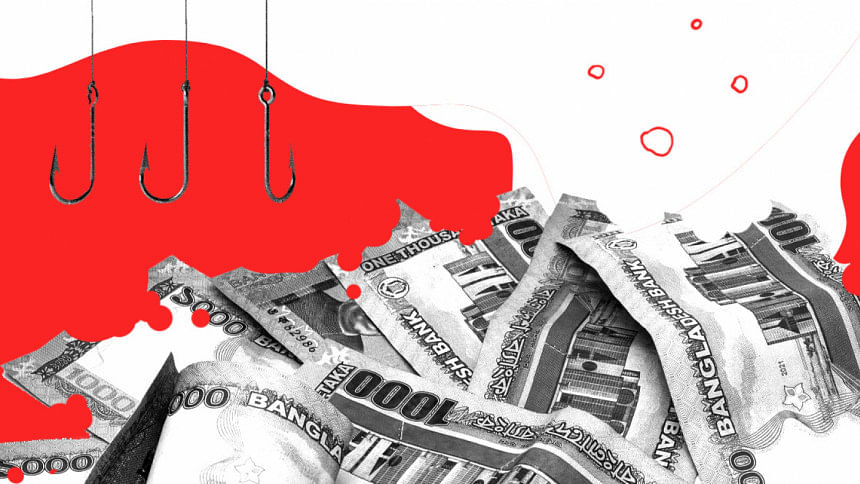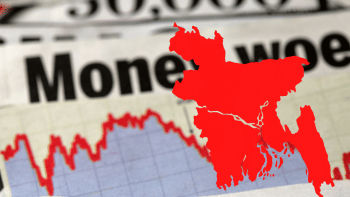Taking loans v tackling laundering: Which serves our long-term interests best?

Under growing economic pressures, especially the looming crisis of foreign exchange reserves, the government has introduced multi-dimensional austerity measures. An IMF loan of USD 4.5 billion has been sought, while multiple more requests to similar multilateral and bilateral development partners are reportedly in the pipeline. These will be loans, repayable with interest by taxpayers and the people at large.
While there is nothing unusual in a country securing international support in such challenging situations, the question is whether the measures represent a crisis management strategy that puts public interest first. More specifically, whether sufficient thought has been given to potential alternative sources that could yield substantially higher amounts than the intended budget and balance of payment support from IMF and the like, at no cost to the people.
In fact, there is a policy option that could generate foreign exchange that is many times higher. This is through sustainably fighting tax evasion and preventing trade-based illicit financial outflows. Before moving on to the potential control of tax evasion and money laundering, which are the key objectives of this decision, it should be noted that the deepening and widening of the drainage of public resources continue unabated.
At the heart of this is the already bedevilled banking sector. The extension of rescheduling of defaulted loans for eight years from the previous provision of two has granted impunity to loan defaulters to the extent that it could transform into the last nail in the coffin of any prospect of recovery of the huge sums of money swindled and laundered from the banking sector in the name of loans.
The other white elephant is the tens of thousands of crores as charge for the unutilised capacity of installed power projects that the Government has trapped itself into. Here too, there is hardly any indicator that this Frankenstein of capacity charge can be controlled in the foreseeable future.
Turning to the problem of money laundering, the government and the relevant government institutions continue to be evasive and ineffective in enforcing the relevant laws and taking advantage of international cooperation. This is despite the fact that in recent years, these mechanisms have become much more robust in facilitating prevention, control and accountability, including the repatriation of stolen assets.
On export and import-related misinvoicing alone, as reported by Global Financial Integrity, Bangladesh on average lost a staggering USD 8.275 billion (Tk 71,000 crore) annually during 2008 to 2015. Judging by the prevailing trend, more updated data can only show much higher amounts of illicit transfers, no less than USD 12 billion annually. By the very nature of this crime, outflows are most likely to be even higher in crisis situations like the current one.
The lion's share of such illicit transfers land in developed countries, where syndicates of law firms, trust companies, offshore specialists, real estate agents, accountants, regulators, and banking and financial services companies collectively facilitate secret deals. Trade-based illicit financial outflows are only one, though the largest, of the many other ways of money laundering. It also includes the age-old practice of hundi, various forms of illicit investments and transactions for residencies and other acquisitions in the likes of Canada's Begumpara, Malaysia's second homes, and facilities in other neighbouring and Middle East destinations.
The total amount of annually laundered money out of Bangladesh is mind-boggling – many times more than what the government is trying to raise internationally from the likes of IMF. Whereas it is well within the reach of the government to control this menace, and substantially raise tax revenue and arrest the laundering of money and assets.
The institutions authorised to prevent and control this crime by enforcing the Anti-Money Laundering Act of 2012, parallel with provisions available under the UN Convention against Corruption, tend to invest energy explaining disagreements with the reported data on money laundering, rather than acting to control and prevent the same. Hardly anything has yet been done to control trade-based misinvoicing, and here lies the missed opportunity.
Unlike well over 120 countries, including some of our regional neighbours, Bangladesh is yet to adopt the Common Reporting Standard (CRS) for automatic exchange of information on financial transactions, which could facilitate robust tracking of money held across borders.
Developed in 2014 by OECD principally to fight tax evasion, the CRS is an information-gathering and reporting requirement of parties to protect and promote the integrity of tax systems.
It requires financial institutions and tax authorities to identify and automatically report information about financial accounts of foreign tax residents to local tax authorities. It covers accounts held by individuals and entities including businesses, trusts and foundations. Not just banks, but broker-dealers, investment funds and insurance companies are required to report.
The CRS is effective in cracking down on undisclosed offshore bank accounts by obliging countries to mandate their banks to share data into the pool of information, which gets fed to every other member country to keep tabs on its citizens. It practically marks the end of bank secrecy, and the good news is that the signatory countries of the CRS include most of the tax havens and offshore banking systems, who are already exchanging data. This means that anyone with international elements to their income and wealth are subject to it.
Bangladesh has the opportunity and, in fact, a national obligation, to take its starving revenue system and nearly non-existent anti-money laundering initiatives to a new level. This could mean sustainably earning many times more annually at no cost, compared to the IMF-like single-shot packages involving repayment obligations inclusive of interest. However, whether the government will have the political courage to accede to this facility will remain in doubt as long as policymaking remains influenced by perpetrators and protectors of tax evasion and illicit financial outflows.
Iftekharuzzaman is Executive Director at Transparency International Bangladesh.

 For all latest news, follow The Daily Star's Google News channel.
For all latest news, follow The Daily Star's Google News channel. 





Comments